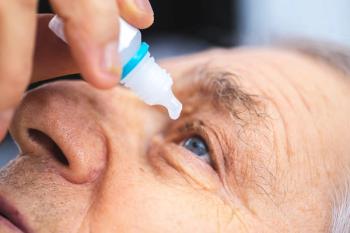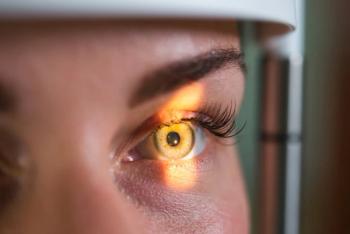
COVID vaccine may trigger corneal transplant rejections, results from new study show
Rejections treatable with topical corticosteroids
Results from a recent study published in the British Journal of Ophthalmology shows that the COVID-19 vaccine can cause corneal graft rejection.1
The researchers think this study is the first to show that corneal transplant rejection following an immunization with
Two women who received a DMEK transplant developed symptoms of endothelial graft rejection after receiving the COVID-19 mRNA vaccine. In both cases, the DMEK was triggered by a COVID-19 vaccination and successfully treated with topical corticosteroids.
Related:
Case 1
The first case was of a 66-year-old woman who underwent an uneventful DMEK. She has a history of human immunodeficiency virus (HIV) infection, which is well controlled. Two weeks after receiving the Pfizer COVID vaccine, she developed acute-onset blurred vision, redness, and photophobia in her right eye.
Indications typical of acute endothelial graft rejection were found upon clinical examination, and in response doctors increased the frequency of the already-prescribed topical steroid dexamethasone 0.1% from 4 times daily to every hour. After 3 days, the symptoms began to improve, and by 4 weeks visual acuity was good and inflammation was gone.1
Related:
Case 2
In the second case, an 83-year-old woman underwent DMEK in her right eye 6 years earlier and in her left eye 3 years earlier. She developed symptoms of rejection 2 months after receiving her first Pfizer COVID vaccine dose and 3 weeks after the second dose.
She was diagnosed with bilateral simultaneous acute endothelial graft rejection and prescribed hourly steroid drops, which improved her symptoms within 1 week.1
Conclusion
“Clinicians and patients should be aware of the potential of corneal graft rejection associated with vaccine administration and may wish to consider vaccination in advance of planned nonurgent keratoplasties,” says Maria Phylactou, MBBS, of Moorfields Eye Hospital in London. “Patients should be counseled on the symptoms and signs that require urgent review to allow early treatment of any confirmed rejection episode.”
References
1. Phylactou M, Li JPO, Larkin DFP. Characteristics of endothelial corneal transplant rejection following immunisation with SARS-CoV-2 messenger RNA vaccine. Br J Ophthalmol. 2021;105:893-896. doi:10.1136/bjophthalmol-2021-319338
Newsletter
Want more insights like this? Subscribe to Optometry Times and get clinical pearls and practice tips delivered straight to your inbox.








































